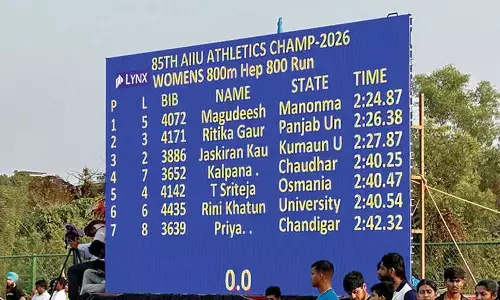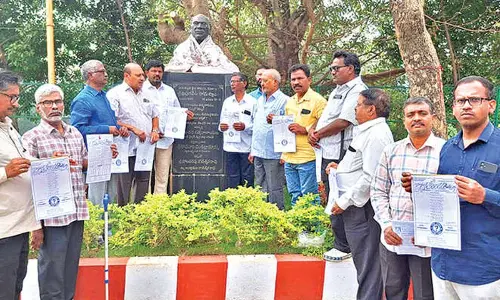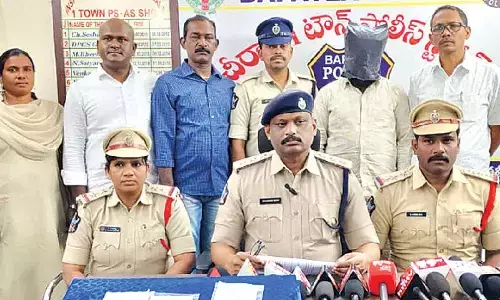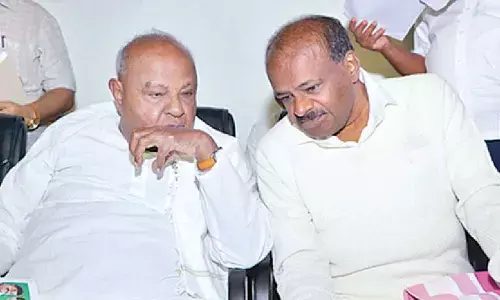Sentinelese in shadows: A lesson in letting live
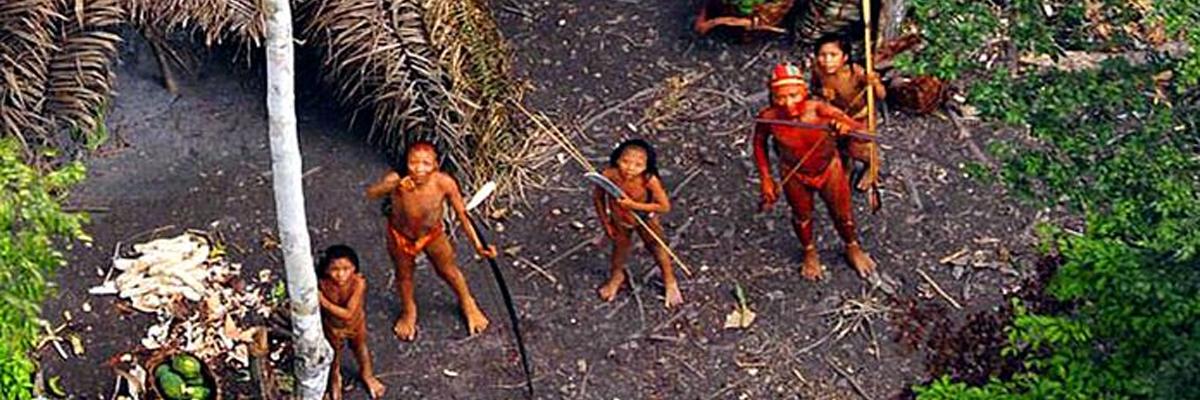
John Allen Chau, a 26yearold American missionary who illegally paddled his way to the remote shores of North Sentinel Island in the Andaman and Nicobar archipelago, was recently killed by the protected Sentinelese tribe Experts apprehend that his trespassing to contact the North Sentinel islanders, the uncontacted and isolated inhabitants
John Allen Chau, a 26-year-old American missionary who ‘illegally’ paddled his way to the remote shores of North Sentinel Island in the Andaman and Nicobar archipelago, was recently killed by the protected Sentinelese tribe. Experts apprehend that his ‘trespassing’ to contact the North Sentinel islanders, the ‘uncontacted’ and ‘isolated’ inhabitants, may have further endangered the existence of the bow-wielding natives. Survival International, a global movement for the rights of tribal people, dubbed their rebuffing contact with the outside world a ‘wise choice’.
“Neighbouring tribes were wiped out after the British colonised their islands, and they lack immunity to common diseases like flu or measles, which would decimate their population,” it said in a statement. After Chau's death, the Andaman and Nicobar Police noted that “access to the North Sentinel Island and its buffer zone is strictly restricted under the Protection of Aboriginal Tribe (Regulation) 1956 and Regulations under Indian Forest Act 1927” and “the Ministry of Home Affairs through its recent circulars also restricts movements of foreigners in these areas”.
“This is a wake-up call for the so called 'foreign adventurists' to stop entering 'out of bounds' and 'non-permissible' areas for the sake of encountering 'exoticism',” said Professor Anvita Abbi, a veteran linguist who has studied the tribal languages of the Andamans.
The Andaman and Nicobar Islands are inhabited by six indigenous tribal populations. The Nicobar Islands are home to two 'Mongoloid' tribes - the Shompen and Nicobarese. Of the dozen linguistically distinct tribes who populated the Andaman islands in the early 20th century, only four survive, the Sentinelese, Jarawa, Great Andamanese, and Onge, with a combined population of 400 to 500 individuals.
They are believed to have arrived in the islands from Africa up to 60,000 years ago. The Sentinelese population is placed at a scant and contested 15 according to the 2011 Census of India. The Andamanese earned a reputation for ferocity due to their violent resistance to foreign intrusions. They remained comparatively isolated from the outside world until the establishment of a British penal settlement in the islands, after the First War of Independence in 1857.
The British befriended one of the tribes, the Great Andamanese, and employed them as bush police to recapture escaped convicts. The Great Andamanese suffered the brunt of colonialism, and, in the 19th and 20th centuries, their number collapsed from several hundreds to a few dozen individuals.
“Any outsider-contact has brought diseases, subjugation, sexual assault, and ultimately decimation of the tribal culture, tribal life and tribal language. The standing example is Great Andamanese. For years, Jarawas maintained the same isolation and now they regret the interaction with us,” explained Abbi.
The notion of ‘hostility’ is a ‘colonial construct’, as Kanchan Mukhopadhyay, a former Anthropological Survey of India researcher, who was stationed in the Andaman and Nicobar Islands, put it, and is a licence to kill.
Madhumala Chattopadhyay, an anthropologist, was the first one to make a friendly contact during an expedition of the Andaman administration with the Sentinelese in January 1991, also advocates leaving them alone. She was also a part of the second contact expedition of the Andaman administration that made a friendly contact with them in February 1991.
In the aftermath of the Chau affair, Survival International has flayed the Indian government for lapses in protection and for easing the restricted area permit (RAP) to visit 29 inhabited islands, including North Sentinel.
These islands, which were removed from the Restricted Area Permit (RAP) regime notified under the Foreigners (Restricted Areas) Order, 1963, till December 31, 2022, included the North Sentinel Island. However, the government had clarified that separate approvals of the competent authority would continue to be required for visiting reserved forests, wildlife sanctuaries and tribal reserves.
The exotic location and the tourism potential of the islands has for long been a topic of discussion and on the central government's agenda. In June 2017, an Island Development Agency (IDA) headed by India's Home Minister was constituted and Indian government's think tank, NITI Aayog, was mandated to steer the holistic development of Islands programme.
Under this programme, in the first phase, it was decided that 10 Islands in the Andaman and Nicobar and Lakshadweep will be taken up for holistic development. The IDA had reviewed 11 anchor tourism projects of which six are in the Andaman and Nicobar Islands. For enhanced connectivity, the airport at Diglipur in Andamans is expected to be made operational for civilian aircraft by December 2018.
In August 2018, NITI Aayog's Chief Executive Officer Amitabh Kant, while speaking at an investors' conference on developing new islands, remarked that Indian government was looking to offer about 100 islands in the Andaman and Nicobar and Lakshadweep for tourism purposes. He had also stated that foreign tourists would not need separate permission to visit these islands as the government is focusing on increasing the tourism inflow.
During the same month, India's home ministry announced that foreign tourists will now be able to visit 29 inhabited islands in the, which were prohibited for visitors, without any restrictions and 11 uninhabited islands (only for day visits).
The decision, the government said, was taken to promote tourism and overall development of the Andaman and Nicobar Islands. Prime Minister Narendra Modi is expected to visit Port Blair, which is capital of the Andaman and Nicobar Islands, on December 30 to commemorate the 75th anniversary of the first flag hoisting day by Indian revolutionary Netaji Subhash Chandra Bose (December 30, 1943) on Indian soil.
It was reported that Modi is expected to announce major projects but it may not happen in the wake of the criticism against opening up of areas in the Andamans after Chau's death. According to a report, the Home Ministry may consider re-imposing the restricted area permit system in North Sentinel island and other islands.
Sumit Mukherjee, a former Anthropological Survey of India researcher, who specialises in human ecology, questioned whether these tribes need ‘our kind of development’?
“The ‘development’ planning we have so far done for them since our contact with them (tribes in the Andaman and Nicobar archipelago) have sadly resulted in more damage than welfare to their society. So, we should agree that we have failed to understand what is effective development for them. They never asked for it,” Mukherjee said.
“What I recommend is we should keep close and careful watch to save every life of those populations and may provide required protective measures and certain carefully prescribed medical services if absolutely required,” Sumit Mukherjee added.
- Sahana Ghosh and Mayank Aggarwal








